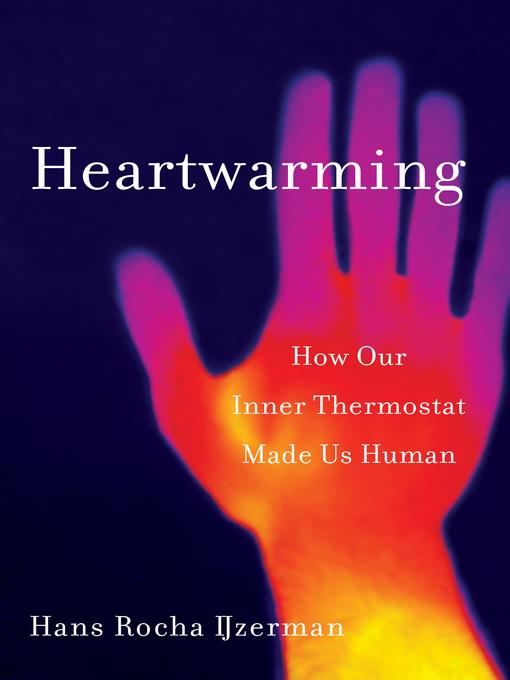
Heartwarming
How Our Inner Thermostat Made Us Human
کتاب های مرتبط
- اطلاعات
- نقد و بررسی
- دیدگاه کاربران
نقد و بررسی

October 19, 2020
Ijzerman, an associate professor of social psychology at Université Grenoble Alpes, debuts with a scattershot study of the concept of social thermoregulation: the idea that social connections have a physiological benefit in maintaining a person’s core body temperature. Thermoregulation, he argues, “reconciles the divorce of mind from body by yielding a profound insight into what it means to be human,” further claiming that one’s psychology can influence physical temperatures and vice versa. Colloquialisms (calling people “warm” or “icy”) can influence human bodies as well, Ijzerman writes, and taking a warm cup of coffee from someone can “prompt an increased judgment of social warmth.” The effect of holding beverages reappears frequently in the studies recounted throughout, though Izjerman admits results have often been inconclusive or nonreplicable, and he writes that “only a single project exists to demonstrate a relationship between network diversity and human core body temperature.” Even with this acknowledgment, he overreaches, such as when he interprets modern competition for fuel sources as being primarily about thermoregulation, or suggests that in the near future people will be able to use thermoregulation to “improve the quality of their close relationships.” There is much that may prove intriguing to practitioners of psychology or to the interested layperson, but less that is truly convincing.

December 1, 2020
According to this insightful exploration of how humans relate to temperature, warmth is essential for biological survival as well as the advancement of civilization. In a narrative that combines hard science and accessibility for general readers, social psychology professor Ijzerman, one of the world's leading experts on "social thermoregulation in humans," begins by describing studies in which subjects exposed to heat felt more sociable and kind than those exposed to cold. Later, however, he warns that when other scientists have repeated similar studies, the majority were unable to confirm the original findings. As a result, the author treads carefully, emphasizing large-scale research and acknowledging that "we psychologists are better at research than we are at giving practical advice and furnishing simple remedies." Generating their own heat allows warmblooded animals to be incredibly active, but the process requires huge quantities of fuel; on the other hand, some snakes can go a year without food. Infants of all species seek warmth, and this quest persists throughout life. Although humans are intensely social, most of us do not understand the links among physical temperature and concepts of trust, friendship, and love. Even though many people believe in the universality of the connection between warmth and affection, "human cultures diverge with respect to affection-is-warmth." Readers may be surprised by Ijzerman's claim that "modern human relationships are organized around body-temperature regulation," but he marshals impressive evidence in such chapters as "People Are Penguins, Too" and "Rat Mamas Are Hot." It turns out that an infant's search for warmth plays an essential role in attachment behavior later, and adults proactively seek it out, if not from physical proximity then through a romantic partner or social network. As the author shows, conventional wisdom about humans and warmth is often wrong. For example, studies do not confirm that weather influences our moods or that depression peaks in winter. Explaining thermoregulation for a popular readership may seem a stretch, but the author succeeds admirably.
COPYRIGHT(2020) Kirkus Reviews, ALL RIGHTS RESERVED.

February 1, 2021
Hot-blooded. Cold as ice. A warm personality. Sometimes in surprising ways, temperature influences the way we feel, how we interact with others, and our overall sense of well-being. Psychologist IJzerman investigates the ""links between physical and psychological temperatures"" and focuses on the concept of ""social thermoregulation."" His book has an uneven quality with chapters ranging from dull to delightful, educational to eccentric. One early chapter struggles with a discussion of Cartesian dualism and embodied cognition. But the next is instructive and amusing as it depicts the different ways animals cope with temperature, from huddling penguins to sun-basking lizards, to tree-trunk-hugging koalas. Other sections delve into the relationship between temperature and disease, marketing (perhaps it's best to sell your comfy house on a cold day), and thermal therapy. Readers learn about the hypothalamus (our body's master thermostat), torpor (a truncated kind of hibernation), and endothermic homeotherms (life forms, including humans, capable and obligated to generate their own body heat and maintain temperature in a tight range). Behavioral psychology, culture, language, metaphor, and physiology are enlisted in this unconventional consideration of temperature.
COPYRIGHT(2021) Booklist, ALL RIGHTS RESERVED.

























دیدگاه کاربران